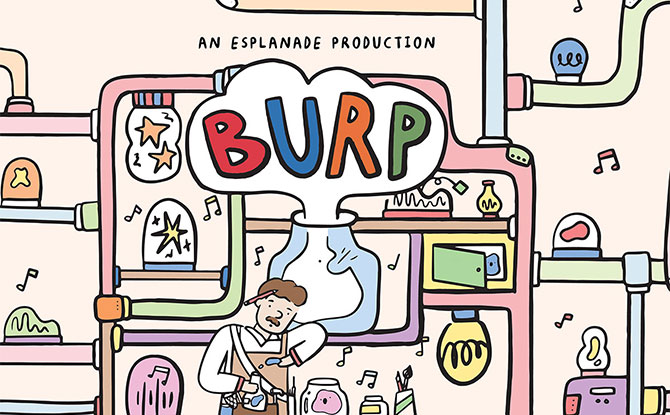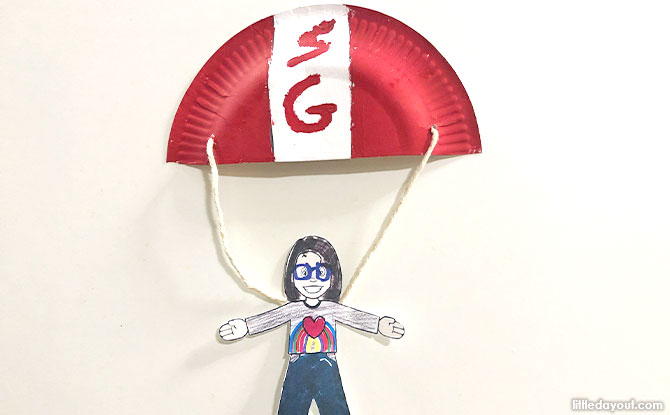
A classic form of literature that encourages creativity and thinking out of the box, poetry is a practice that kids can be encouraged to do. This will not only improve their reading and writing skills but also find the joy in expressing themselves through this medium of literature. Here are some creative ideas and poem prompts to get kids started on poetry writing.
Types of poems for kids to write
Many people think that poetry is difficult because it has to rhyme, however, poems often do not. Here are some variations of poems that you and your kids can write together.
Colour Poem
Choose a colour to centre the poem around. (e.g: yellow) One way to write a colour poem is to brainstorm the objects that are of the chosen colour. (E.g: Chicks) Then, add descriptive words to the object (fluffy chick). Repeat this process for five or more objects and it might look something like this:
Yellow
BE PSLE-READY: Join Expert Educators for Revision Boosters to Empower P6 Students
BURP: Join the Sound Collector on a Whimsical Chase at Esplanade – Theatres on the Bay
WEEKEND IDEAS: Get Inspirational Ideas of Things to Do
Fluffy chick
Sweet bananas
Smooth slide
Runny Yolk
The hot morning sun
You can also reference feelings, such as blue being a feeling of peace or sadness.
Blue is the sky
Blue is the ocean
Blue is my pillow
Blue makes me calm
Blue is my favourite colour
Haiku
A haiku is traditionally a Japanese poem consisting of three short lines that do not rhyme. It contains 17 syllables in 3 lines of five, seven, five. Haiku poems are typically about nature and encourage the use of vocabulary and imagination. Here are some haiku prompts to complete:
- Snow slips down softly
- Through the trees, I go
- Larger than a whale
- There is a window
- A sunny Sunday
An example of a haiku would be:
Snow slips down softly
I wake up from my bedside
This is Singapore
Acrostic poem
In an acrostic poem, the first letter of each line spells a word. The word is the subject of the poem. This is a simple and fun activity that kids of many ages can write. A child can also use their name or favourite food. An example of an acrostic poem would be:
Chocolate icing on top
And strawberry biscuits below
Keep some for dessert
Eat your dinner first!
Limerick
Limericks are best known for their punny lines, cheeky endings and silly rhymes. They are known to follow the following format:
• They are five lines long.
• Lines 1, 2, and 5 rhyme with one another.
• Lines 3 and 4 rhyme with each other.
• They are usually funny.
Some examples of fun limericks include the limerick found in the Roald Dahl book Matilda:
The thing we all ask about Jenny
Is, ‘Surely there cannot be many
Young girls in the place
With so lovely a face?
The answer to that is, ‘Not any!’
or the Old Man with a Beard by Edwin Lear:
There was an Old Man with a beard,
Who said, “It is just as I feared!—
Two Owls and a Hen, four Larks and a Wren,
Have all built their nests in my beard.
5 Senses Poem
For this poem, encourage your child to describe an experience, item, or colour using the five senses. It is most helpful if this activity is paired by letting them immerse themselves in the experience first, such as writing a poem about food while cooking together or a poem about the ocean after a day at the beach.
Each line of a five senses poem begins with one of the senses. Encourage your child to use descriptive words and feel free to leave out a sense if it doesn’t fit.
An example of a sense poem would be:
I feel a drop of rain on my head
I hear the thunder start to rumble.
I taste the snack I had at school
I smell the breeze of the pond nearby
I see my mum asking me to come back inside the house
Rhyme Schemes
Rhyme schemes are the specific patterns that a poem follows at the end of each line. Some rhyme schemes follow a simple pattern like AA and BB. For example:
Jack and Jill
Went up a Hill
They saw a lion
And ran down cryin’
Poems can also follow an ABAB format. An example would be:
I had a dream that I could fly
I flapped my arms and went
I took off into the sky
What a memorable event!
Diamante Poems
A diamante is a seven-line poem that when written our is shaped like a diamond. It is an interesting way of storytelling as the poem goes from the subject at the top of the diamond to a different subject at the bottom. The two subjects are usually opposites.
The seven lines follow a specific format:
• Line one: Noun
• Line two: Two adjectives that describe the noun in line one
• Line three: Three verbs that end with “ing” and describe the noun in line one
• Line four: Four nouns—the first two must relate to the noun in line one and the second two will relate to the noun in line seven
• Line five: Three verbs that end with “ing” and describe the noun in line seven
• Line six: Two adjectives that describe the noun in line seven
• Line seven: Noun that is opposite in meaning to line one (antonym diamante) or the same in meaning (synonym diamante) as the noun in line one
An example would be:
Sun
Hot Golden
Burning Scorching Blinding
Light, Flame, Bright, Night
Orbiting, Reflecting, Dreaming
Silver, Cool
Moon
Free Verse
Free Verse Poems are poems that do not follow a specific structure or rhyme scheme. It’s one that can be used to express deep emotions or thoughts. The author chooses how to use techniques such as rhyming, syllable count, and more. Some of these poems follow natural speech patterns, while others use shortened and extended lines to convey their thoughts and emotions.
Poetry prompts for kids
Sometimes starting off with a theme is a great way to get the pen or pencil flowing! Here are some themes that you can let your kid write poems about. Encourage them to use the different types and formats of poetry above to form the structure of the poem.
Write a poem about:
- Your favourite animal
- Sights on the road
- First day at school
- The sound of your alarm clock in the morning
- A delicious lunch
- A strange dream
- Your favourite game
- A river
- Thunderstorms
- A pet
- A family member
- A friend you miss
- Yourself
- An afternoon nap
- The sounds in the kitchen
Happy writing!
We predict that you will also enjoy this resource of 320 writing prompts for kids.





















